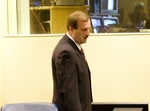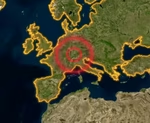Ex ICTY Spokesperson: Genocide denial ban meant to end rewriting of history

A law banning genocide denial imposed last week by Bosnia’s international administrator is a step toward ending the “strategic” efforts to carry out the last phase of genocide itself, former spokesperson of the International Criminal Tribunal for the Former Yugoslavia (ICTY), Florence Hartmann, told N1 on Monday.
Oglas
The genocide in Bosnia was established as a fact and the policy of denying it was only a stretegic effort to rewrite history, Hartmann said, adding that not much has changed in Bosnia since she visited the country two years ago until last Friday, when the international administrator in the country imposed the law.
The outgoing High Representative tasked with overseeing the civilian implementation of the 1995 Dayton Peace Agreement in Bosnia, Valentin Inzko, used his special powers on Friday to introduce amendments to the BiH’s Criminal Code which sanction the glorification of war criminals convicted by final and binding judgments, as well as the denial of genocide, crimes against humanity and war crimes.
Genocide denial became more and more prevalent in the country, but now things could begin changing in Bosnia, Hartmann said.
“This gained momentum from one year to the next,” she said, arguing that the campaign of genocide denial was “strategic” and that it represents “part of the crime and the final phase of genocide and mass crimes.”
Hartmann noted that Inzko explained that he hoped local politicians would adopt such a law and finally decided to impose it once he realised that this was not going to happen.
However, “he should have realised that he is already late, and he is late because there is a blockade, a neutralisation of such a decision,” she said.
“There are still policies within BiH that try to indicate that BiH is dysfunctional. The international community should stop that when it sees it happening," Hartmann said.
Facts that have been determined are non-negotiable, she said.
"France was one of the first EU members to adopt a law banning Holocaust denial. The facts are established and then there is the issue of freedom of speech that can be debated,” she said.
Facts such as the gas chambers in the Holocaust or the genocide in Srebrenica, “have been established, and are not open for discussion,” she concluded.
Kakvo je tvoje mišljenje o ovome?
Učestvuj u diskusiji ili pročitaj komentare
Oglas
Kakvo je tvoje mišljenje o ovome?
Učestvuj u diskusiji ili pročitaj komentare
Oglas





 Srbija
Srbija
 Hrvatska
Hrvatska
 Slovenija
Slovenija



























































